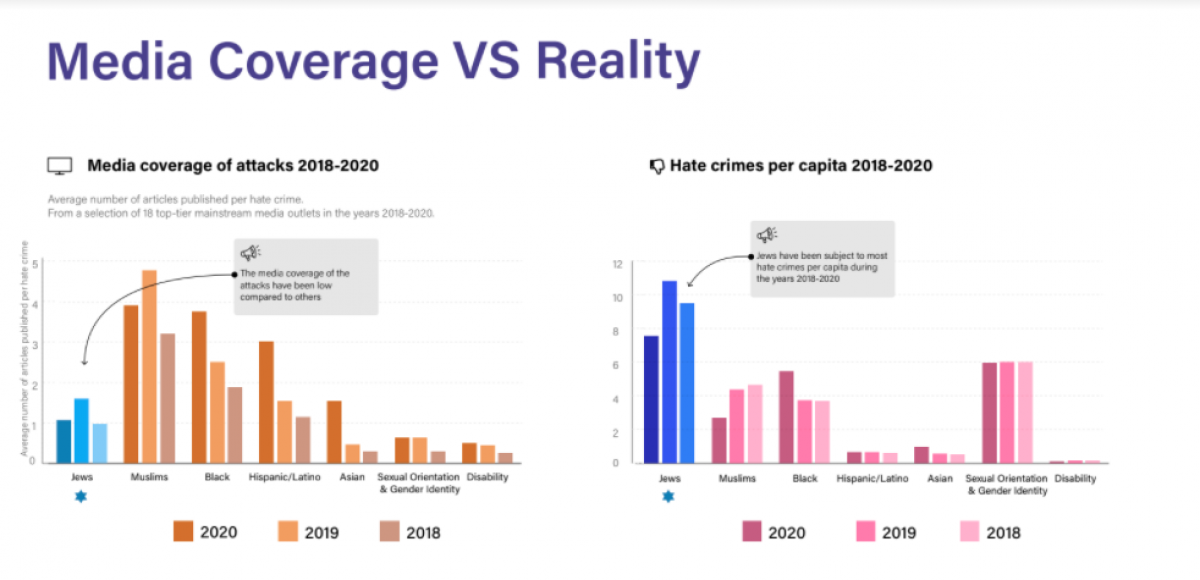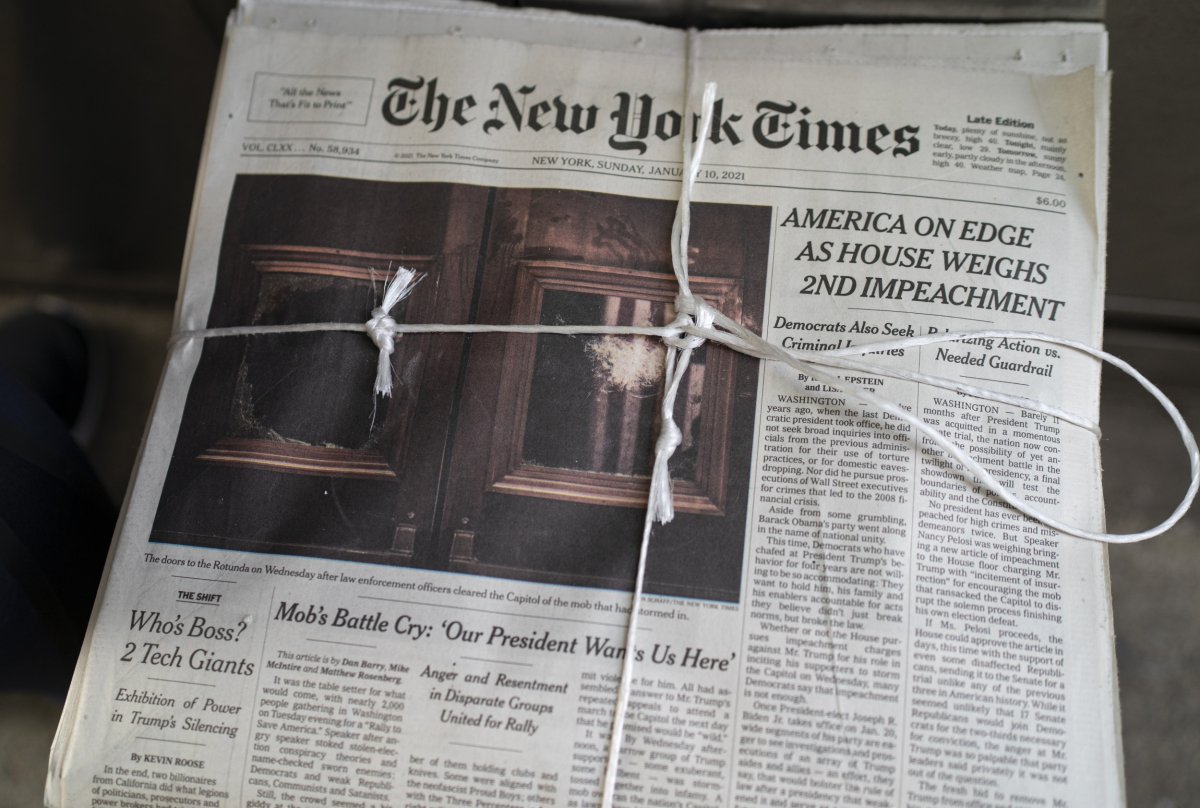There is a disturbing disparity in the amount of media coverage afforded to hate crimes against different minority groups in America, and it's putting vulnerable populations at risk. These have been the findings of a research study my organization, HonestReporting, released on Feb 9. The study examined hate crimes tracked by the FBI between 2018 and 2020, then compared the figures to the amount of news items produced about each incident.
What we found was both disturbing and heartening: The hate crimes that received the most media coverage also reduced the number of hate crimes against those communities. But when it comes to Jews and Asians, the media seems to be holding out on its power to reduce hate crimes; hate crimes against Jews get the least amount of coverage—and are unsurprisingly on the rise.
Jews are per capita the victims of more hate crimes than any other group in the United States—by a large margin. Yet, these instances get among the least media coverage, leading to the incorrect perception that antisemitism is a rare or inconsequential problem. Our study found that Jews received on average less than two news articles per hate crime, whereas hate crimes against Muslims generated more than six.
Hate crimes against Asian-Americans are also highly underreported, even as their incidence is growing at an alarming rate, nearly doubling in the last three years. This same pattern holds for the LGBTQ community and Americans with disabilities. On the other hand, hate crimes against Muslims over the past three years have actually started decreasing. And this of course is an encouraging sign.

Correlation may not prove causation and more research is necessary to determine the impact of non-media-related factors that may partially account for HonestReporting's findings. That said, we found a clear and recurring trend: When the media shines a spotlight on hate crimes against certain minorities, these attacks, in turn, appear to begin declining. By contrast, when the media neglects or downplays crimes against various groups, these vulnerable populations seemingly end up being targeted even more.
One of the most severe of the recent spate hate crimes against Jews occurred just last month, when a terrorist took hostages at gunpoint at the Beth Israel synagogue in Colleyville, Texas. Other notable occurrences included mass murders at Jewish houses of worship in Pittsburgh, Pennsylvania and in Poway, California. During last May's conflict between Hamas and Israel, Jews across the world—including throughout the United States—were subjected to both verbal and physical abuse. Much of this hate came under the guise of "criticism of Israeli policies" but it should go without saying that an assault is not "criticism," and assaulting an American Jew does not constitute "criticism of Israeli policies."
Then there's the Whoopi Goldberg debacle. Goldberg claimed on the show she co-hosts, The View, that the Holocaust "wasn't about race" but, rather, about "two groups of white people." Ms. Goldberg's comments are a symptom and natural extension of living in a world in which hate crimes against some groups are seemingly treated as less important, or in some cases, as not even "racism" at all.
The HonestReporting study indicates that the way we approach and discuss racism and hate crimes directly impacts on the safety of America's most vulnerable groups. It's a simple and obvious idea, the driving force behind the George Floyd protests, that the first step toward creating a safer and more equitable world starts with mobilizing to highlight the dangers of racism, especially racism that is underreported or improperly framed.

My grandparents moved to the United States in the 1950s after surviving the Holocaust, during which they were persecuted based on their race. I was shocked to learn as an adult that, in some cases, they were greeted in America by signs that read, "No dogs, Blacks or Jews allowed." This was common even in places like New York City and Chicago, and well into the 20th century.
Despite these challenges, my grandparents built a modest and happy life, something that would have been impossible in the countries they had fled. They overcame all forms of "isms"—communism, socialism, fascism and Nazism—before coming to America, a place that, for all its faults, remains a land of opportunity.
Americans have a unique responsibility to make sure that our country upholds its founding ethos, its promise and its dream: that all people, regardless of race, religion, national origin or any other categorization, are not only created equal but also treated equally. This, at its core, is the American Dream. And though it has not always been implemented perfectly and took centuries to guarantee basic equal rights to all its citizens, we must not backslide when so much has been achieved. To keep this dream alive requires before anything else basic safety, which is possible only when we speak out against injustice, adequately and thoroughly.
And this critical responsibility also falls upon the shoulders of the media.
Daniel Pomerantz is the CEO of HonestReporting.com, an adjunct professor at the Bar Ilan and Reichman Universities in Israel, and an on-air expert in business, law and political issues. Follow him on Twitter: @danielspeaksup.
The views in this article are the writer's own.
Uncommon Knowledge
Newsweek is committed to challenging conventional wisdom and finding connections in the search for common ground.
Newsweek is committed to challenging conventional wisdom and finding connections in the search for common ground.
About the writer
To read how Newsweek uses AI as a newsroom tool, Click here.








